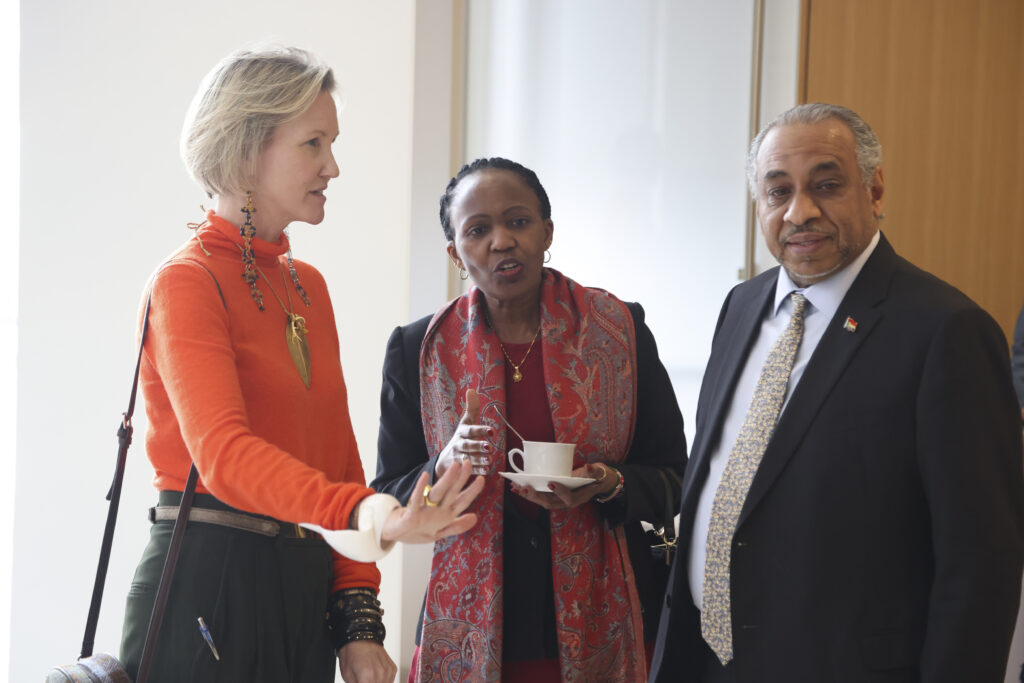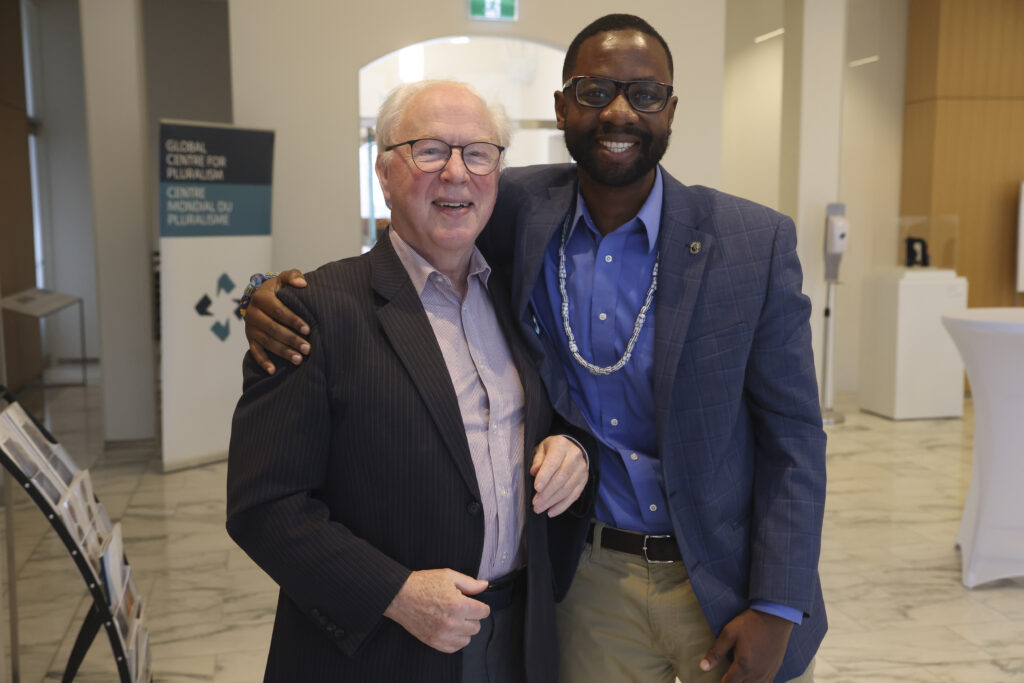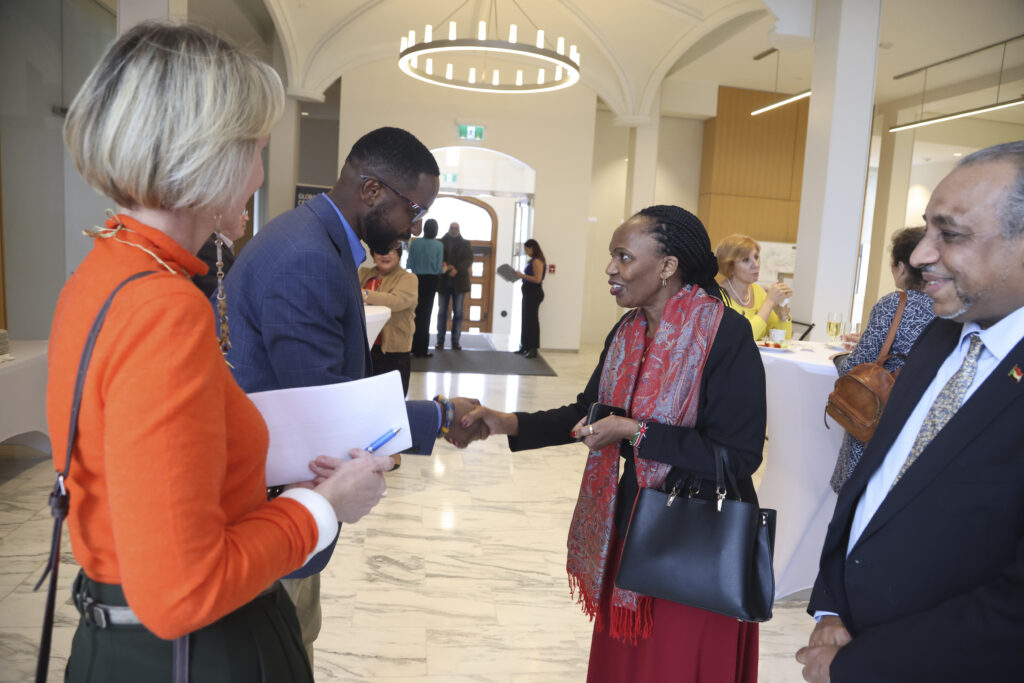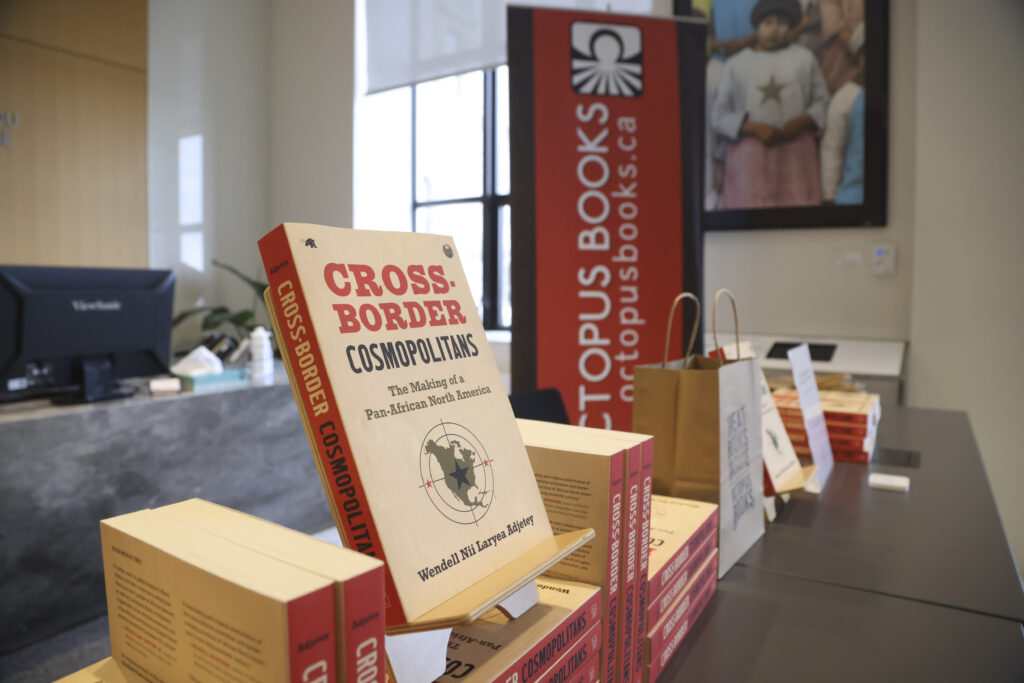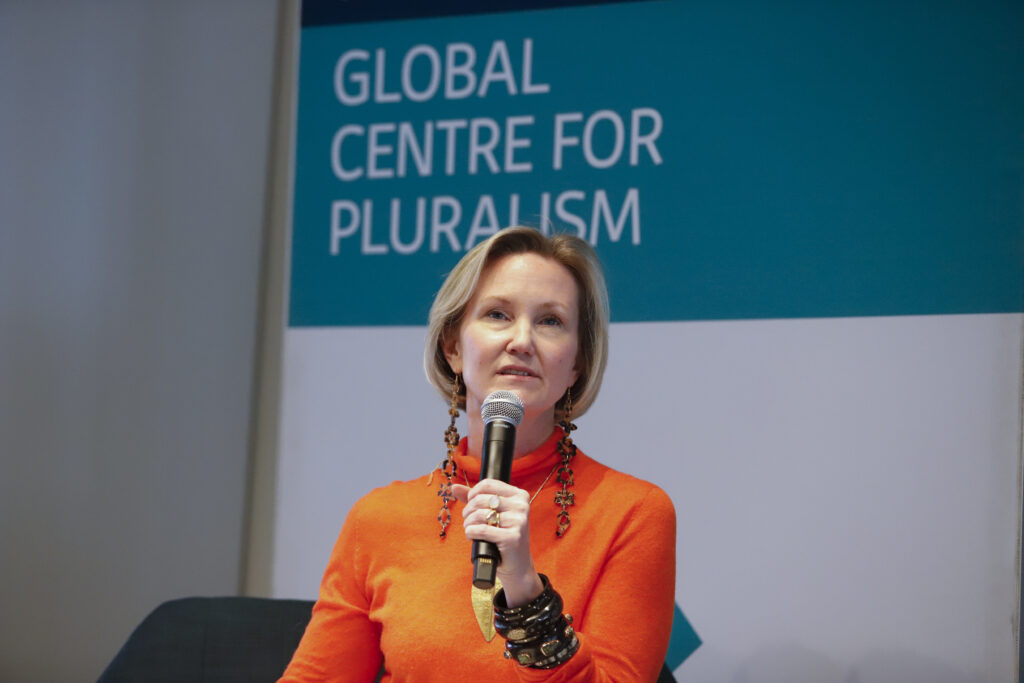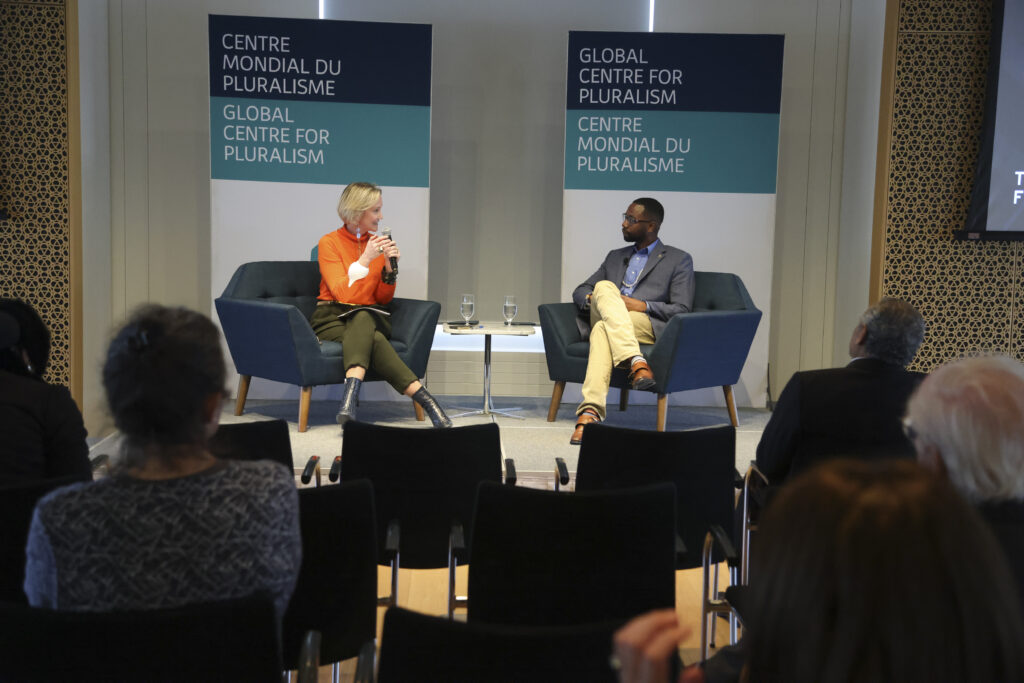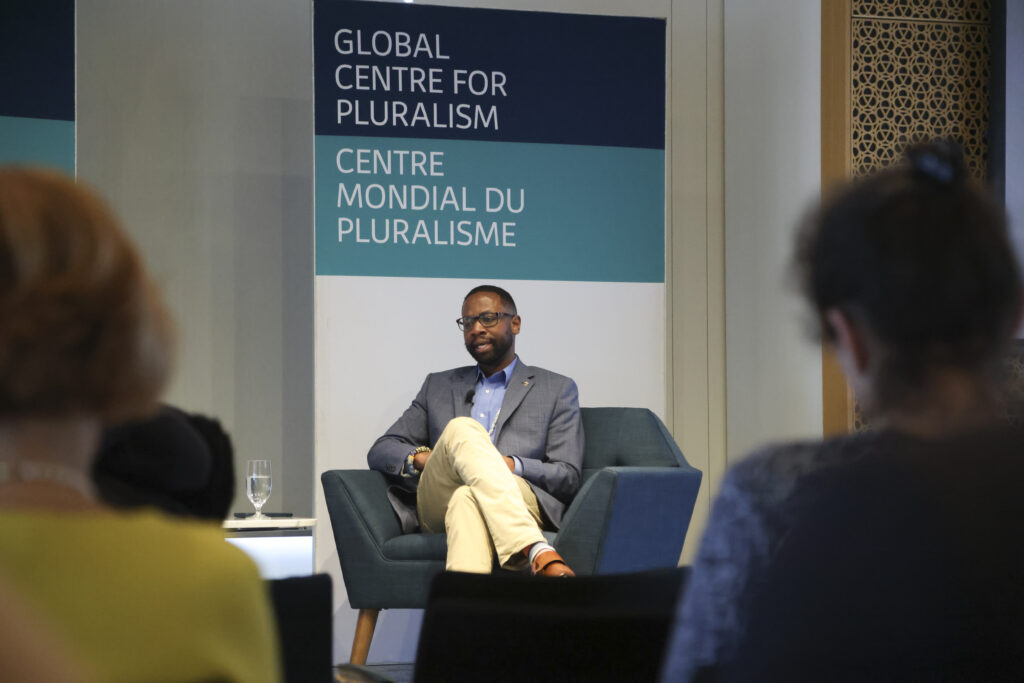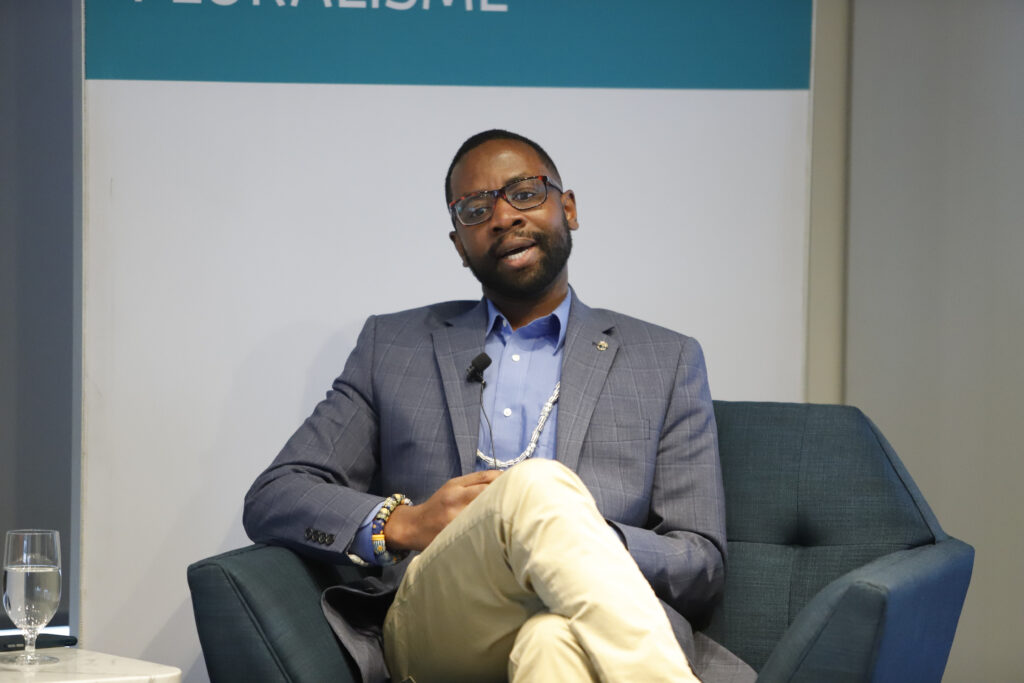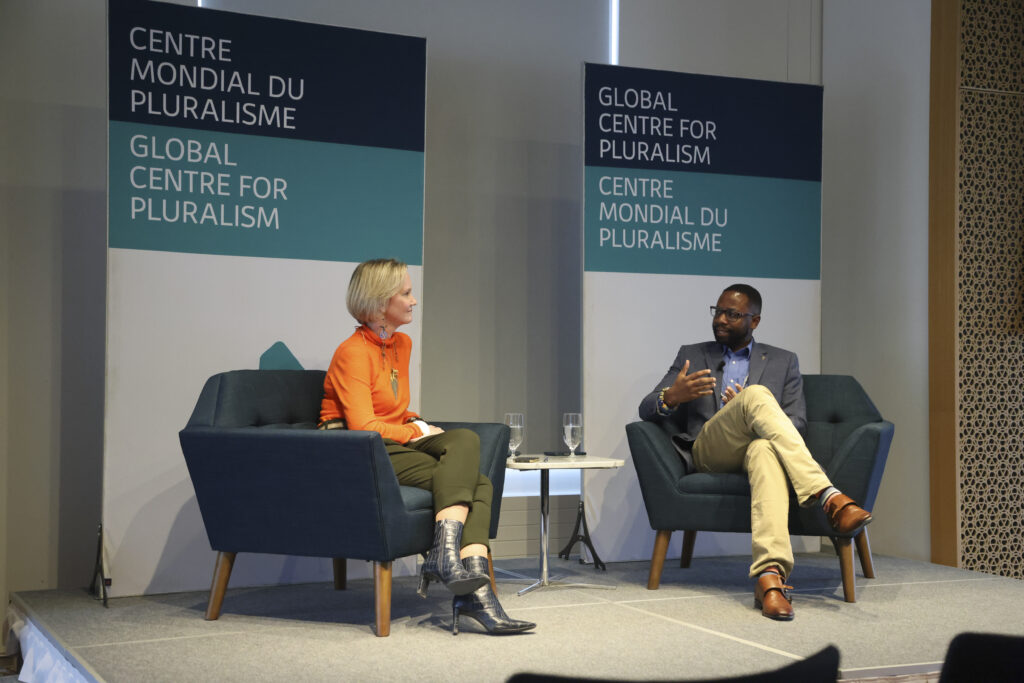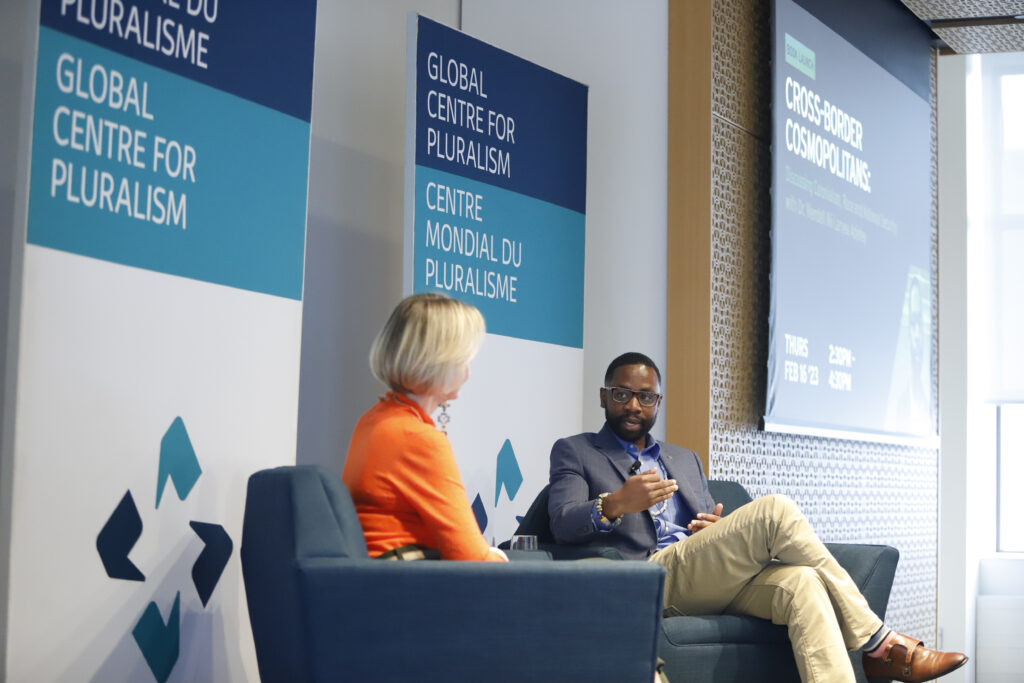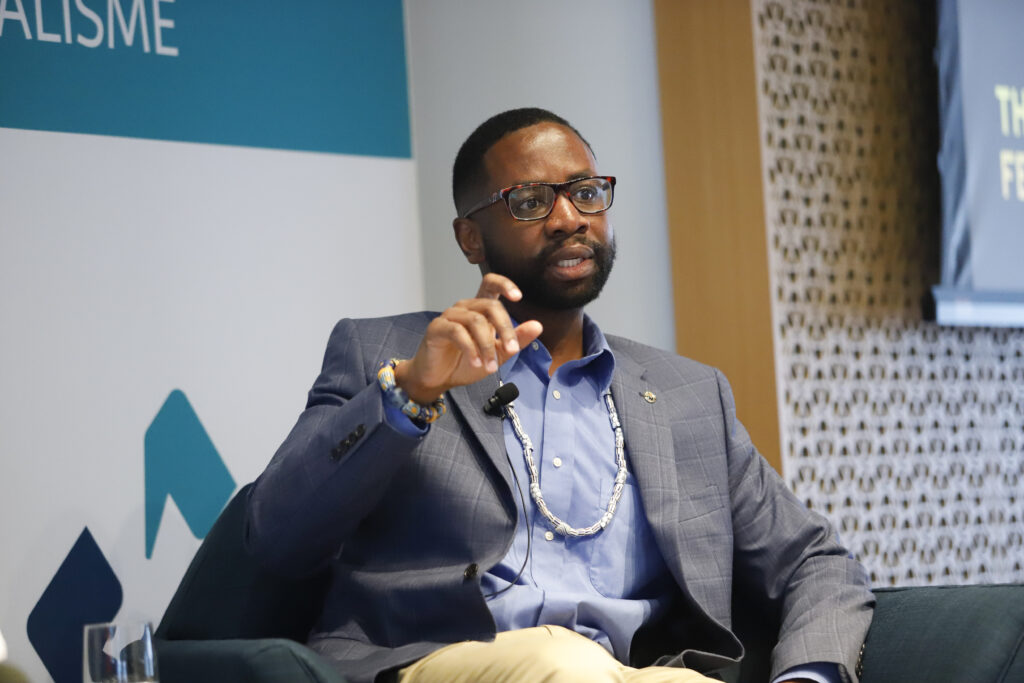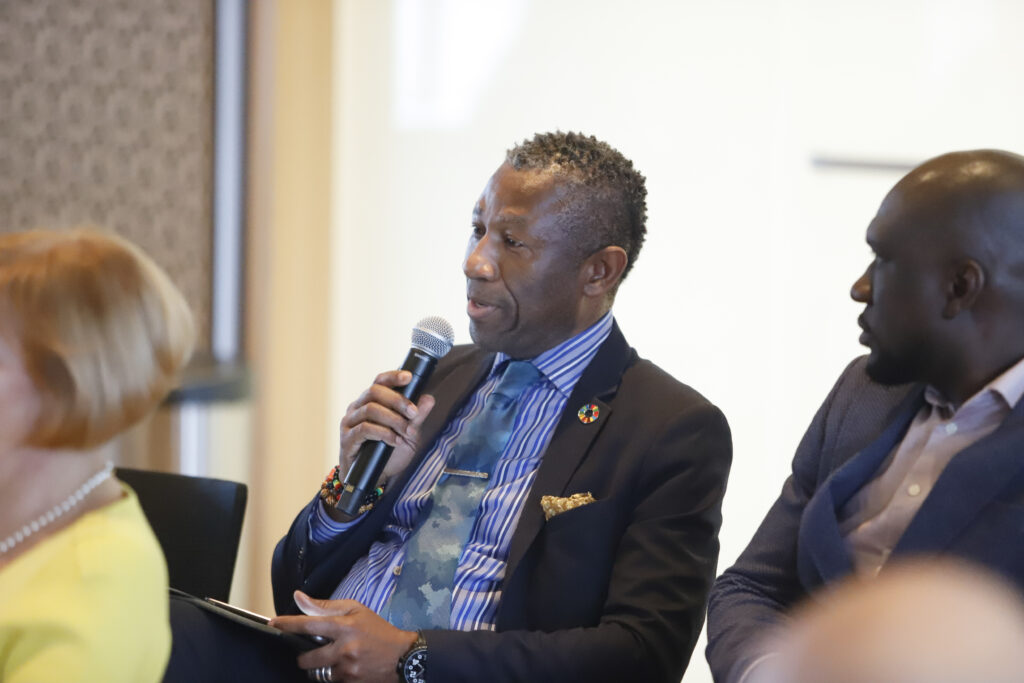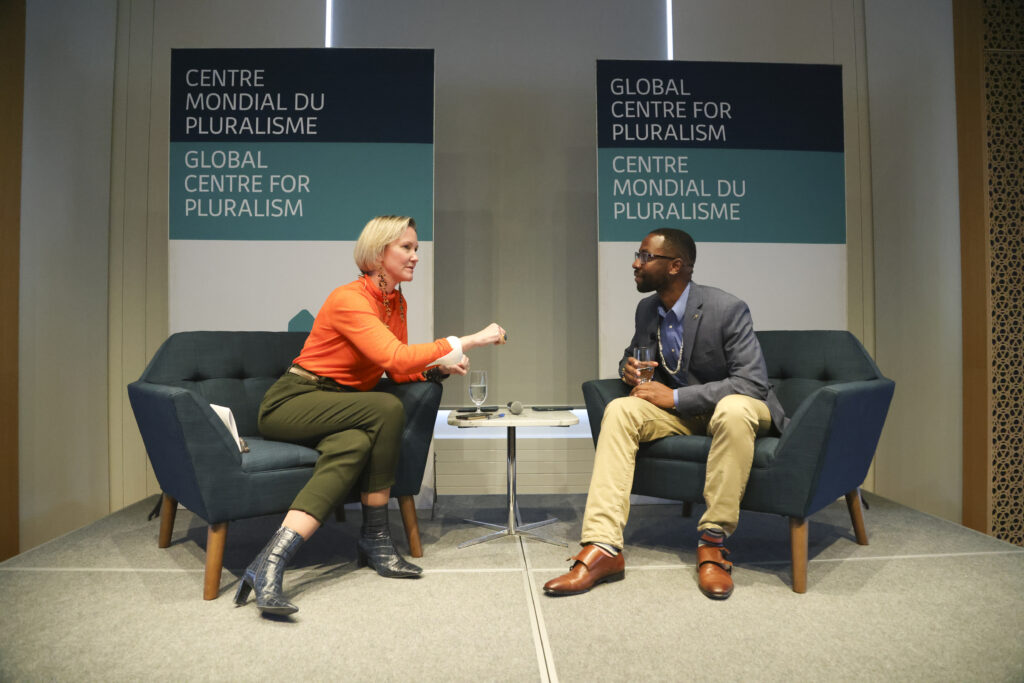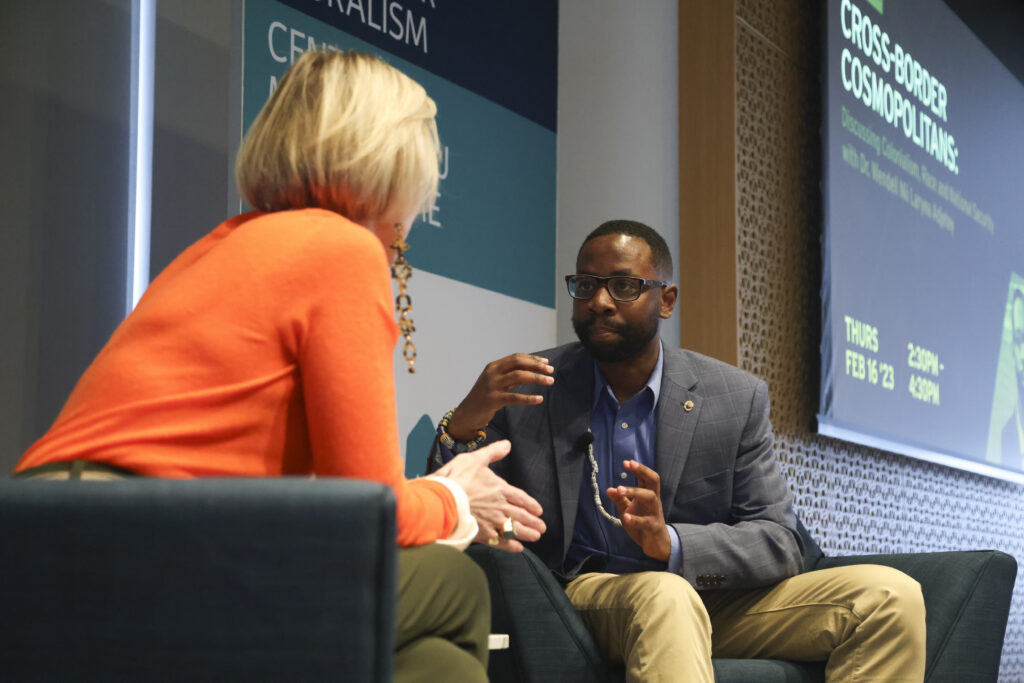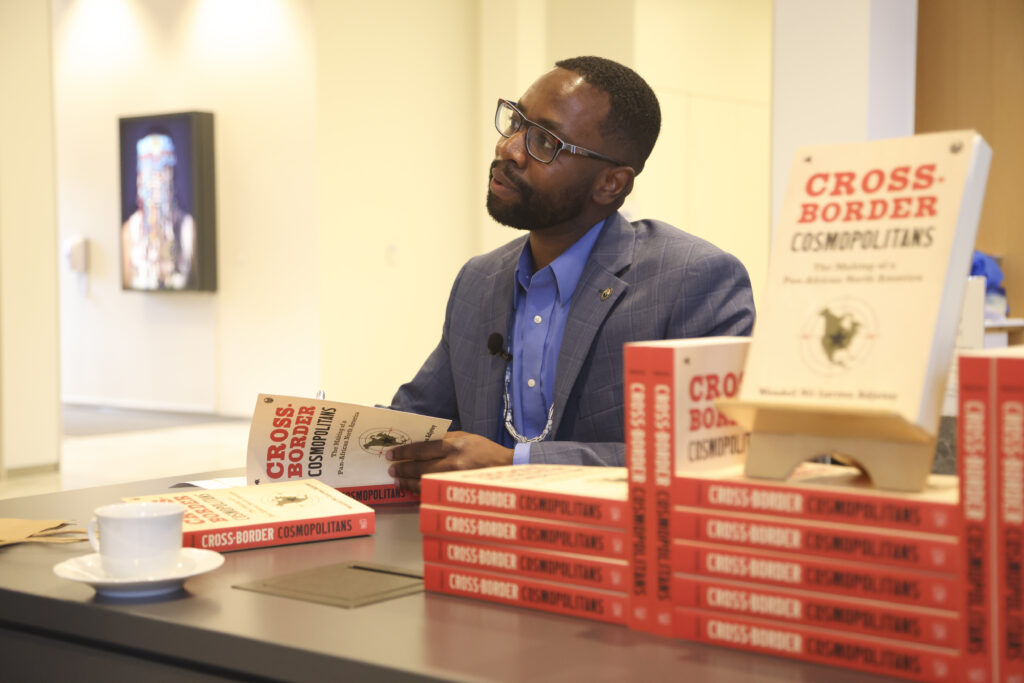Cross-Border Cosmopolitans: Discussing Colonialism, Race & National Security with Dr. Wendell Nii Laryea Adjetey
On February 16, 2023, the Global Centre for Pluralism celebrated the launch of Dr. Wendell Nii Laryea Adjetey’s latest work, Cross-Border Cosmopolitans: The Making of Pan-African North America, in collaboration with Inspirit Foundation. Dr. Adjetey’s book critically examines the history of the African diaspora in North America and, in doing so, encourages us to explore beyond our current definitions of community and connection.
Secretary General of the Centre Meredith Preston McGhie sat down with Dr. Adjetey to discuss the importance of Black solidarity and activism across national borders. They discussed how this solidarity has contributed to shifting established power relations. This shift in power, as Dr. Adjetey note “has the capacity to help us heal our wounds, and without which it would be very difficult for us to build on our pluralist foundations”.
The wounds Dr. Adjetey refers to are the anti-Black notions that perpetuate harmful misconceptions, specifically regarding gang violence and increased incarcerations. Through his work on community development in North Toronto, Dr. Adjetey recognized the importance of challenging the mainstream image of Black life. He began to explore how and why Black people of various nationalities, origins, religious and cultural traditions have historically come together to imagine a Pan-Africanism that mitigates the effects of anti-Black racism. Here, Pan-Africanism relates to a “solidarity based on Black racial consciousness, social mobilization against exploitation and domination, and control over community resources.”
Adopting a continental approach, Dr. Adjetey studies Pan-Africanism through a Canadian, American, and the oft-overlooked Caribbean perspective. One key takeaway of Dr. Adjetey’s work is that there exists, irrespective of gender or class, a strong transnational solidarity rooted in a common Black experience. Moreover, this solidarity, based on mutual respect, is strengthened by its diversity and intra-racial differences. As such, many Black communities display a cosmopolitan ethic by which they remain local yet act globally.
Dr. Adjetey notes that this mindset is instrumental in the pursuit of racial justice and liberation. From a historical perspective, this refers to the way Black people in North America have looked across borders to define their own terms of citizenship. Notably, Dr. Adjetey tells the story of how Juanita DeShield, the first Black woman to graduate from McGill College in the 1930s, engaged Black communities in Harlem, New York to advocate for better treatment for people of African descent. Stories such as this elucidate the transnational community building that was crucial in addressing common hardships.
One particularly significant hardship to overcome has been the United States and Canada’s shared mission to undermine the right to Black self-determination. This effort has been carried out through state-sanctioned counterinsurgency by national security agencies, which he rigorously documents in his book. And yet, the Canadian government has managed to avoid heavy criticism for its discriminatory practices because it denounced racism within the British Commonwealth and the United States, thus, becoming a champion for non-white peoples. This image must be complicated to accurately portray Canada’s relationship with its racialized groups.
Dr. Adjetey’s concluding point reminds us that Canada, in the pursuit of a humanitarian reputation, tends to contrast itself to the racially-divided United States to minimize its own colonial roots – what he calls the myth of Canadian progressivism. Dr. Adjetey stresses that it is a myth because Canada, much like the United States, has pushed anti-Black immigration policies and sabotaged Black liberation efforts.
Moreover, this myth prevents any discussion on Indigenous dispossession and Canada’s mistreatment of immigrants throughout the twentieth century. It also fails to recognize that people at the margins are often the most influential in developing the contours of citizenship and shaping Canadian identity. Dr. Adjetey’s work illustrates that racialized people have vested interests in pushing for a more pluralistic society that actively includes marginalized voices and seeks to address historical wrongdoings.
You can watch the full event below.
Panellist :
Wendell Nii Laryea Adjetey
William Dawson Chair, assistant professor, and specialist in post-Reconstruction U.S. history and the history of the African Diaspora in North America and the Atlantic World at McGill University. He is the author of Cross-Border Cosmopolitans: The Making of a Pan-African North America (2023, UNC Press)


